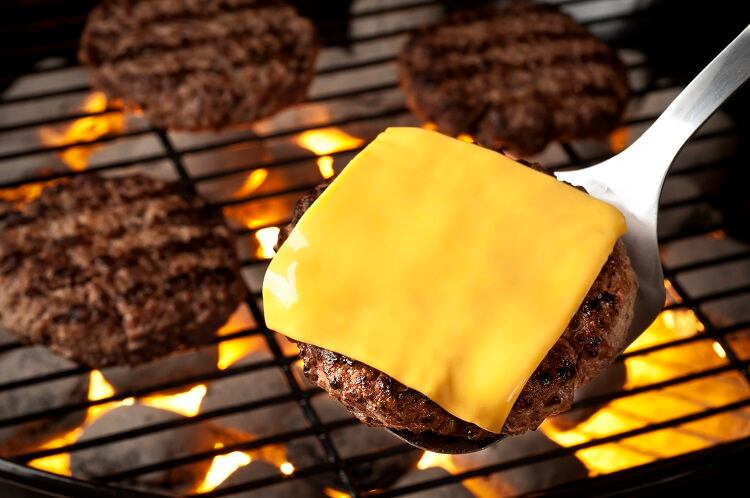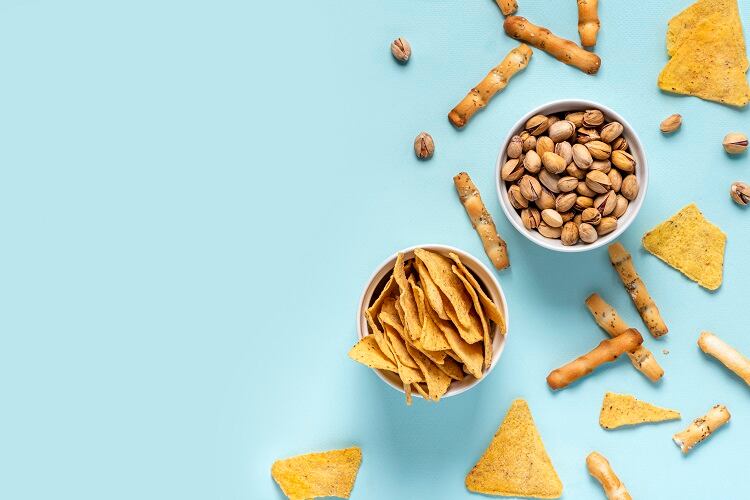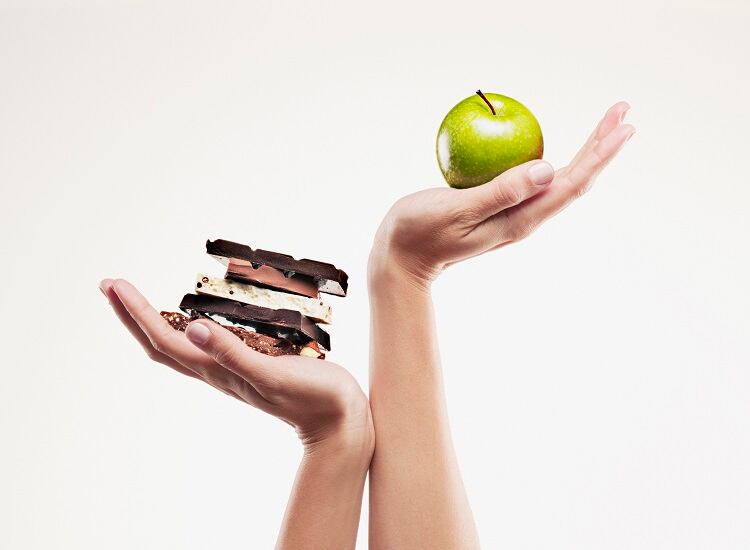Consumers are adopting healthier and more sustainable diets. Or so they say.
According to 2021 data from IGD, nearly one-fifth of consumers now list the environment as their main motivator for healthy and sustainable eating.
The same data suggest more than three-quarters of consumers have increased, or are thinking about increasing, their fruit and vegetable intake.
However, a growing number of studies suggest consumers are actually pretending to eat ‘healthier’ and ‘more sustainable’ diets than they actually do. Some consumers are outright lying, while others are opting for ‘better’ food options in the presence of others.
Misreporting 900 kcal everyday
In the ‘outright lying’ category are consumers in Britain, who according to fresh research out of the University of Essex, are eating the equivalent of three extra McDonald’s cheeseburgers a day than they admit.
In a study published in American Journal of Human Biology, a cohort of 221 adults with an average age of 54 and a range of body shapes, were selected. Participants were asked to keep a food diary while the researchers checked how much energy they consumed by using radioactive water and conducting urine tests.
The researchers concluded that everyone lied, whether they were obese or non-obese, about how much they consumed by the same amount.
They all claimed they consumed 1,800 calories on average. Obese participants misreported how much they ate by an average of 1,200 calories, while slimmer participants misreported by 800 calories. However, obese participants burnt 13% more energy – equating to around 400 calories.
“The gap between reported intake and actual expenditure was bigger in obese adults than normal-weight adults but not because they lied about how much they had eaten, instead it was because they expended much more energy each day than their thinner peers,” explained study lead Professor Gavin Sandercock from the School of Sport, Rehabilitation, and Exercise Sciences.
“Bigger bodies need more energy every hour of the day and particularly during physical activity because moving your weight is hard work.”
The biggest takeaway for Sandercock was that contrary to public opinion, Britain’s obesity issue is not due to obese people lying about their diet. “The idea that obese people lie about their food intake is wrong – it’s simply that as energy requirements increase with a larger body size there is more error between what people report and what they actually eat.”

The fact remains, however, consumers fib about an extra 900 calories consumed per day, which is the equivalent of three McDonald’s Cheeseburgers, five pints of lager, seven packets of ready-salted crisps, 18 apples, or 300 cherry tomatoes.
Which snack depends on who’s watching
While the University of Essex study serves to disprove the theory that obese individuals are more prone to lying about energy intake than their non-obese counterparts, it does not delve into why people withhold such information.
A separate study out of the UK, co-authored by City University London’s Bayes Business School and published in Psychology and Marketing, investigates food choices and social stigma. The researchers conclude that people choose healthier food when with ‘outsiders’ for fear of being negatively judged.
Participants were more likely to choose a healthy snack in the presence of an observer of a different race (as opposed to the same race) or one affiliated with a different university (as opposed to their own university), they noted.
The researchers surveyed around 1,000 individuals in total, and conducted experiments with several hundred adults in a large US city and university. In one experiment, for example, 180 students were offered the choice between indulgent M&Ms and healthier raisins as a snack.
When participants were in the presence of an unknown fellow student from their own university, only 12% of students selected the healthier raisins. Yet when in the presence of an unknown student from another university, this figure almost doubled to 31%.
Why was this the case? According to the findings, people feel judged to a larger extent by ‘outgroup’ members, and as a result, they strategically use healthy food choices to make a positive impression to counter this negative judgement.
In one experiment, for example, consumers were told that others around them were judgemental or were tolerant. Participants were more likely to choose the ‘healthier’ option – in this case, carrots over cookies – in the judgemental environment than in the tolerant environment.
This suggests, noted the researchers, that expected judgement from others can explain the findings.

So how can these results be leveraged for good? According to the researchers, one way to promote a healthy diet could be to advertise the social benefits of healthy choices.
“We know that food plays an important role in social life and consumers often make inferences about others’ traits and characteristics based on their food choices,” said Dr Janina Steinmetz, Associate Professor (Reader) of Marketing at Bayes.
“Our research shows that we can use this important role of food for consumer welfare if we highlight that healthy food is not only good for consumers, but also helps them to impress others.
“These findings could be very significant to those hoping to improve healthy eating practices in the UK because they open a new avenue to promote the benefits of healthy eating: It’s good for you and your health, and it’s also good for making a positive impression.”
Consumers drink plant-based milk in public… but not at home
It is not only universities investigating how honest consumers are being about their food choices. Understanding the motivations behind consumers’ choices can help inform business strategies within the industry.
Dairy farmer cooperative Arla has observed that an increasing number of consumers are seeking more sustainable food choices based on what they read on social media. Studying the impact on social media on attitudes to dairy revealed particularly interesting findings amongst Gen Z consumers.
The One Poll study, commissioned by the dairy major, suggested that more than half (55%) of consumers from Generation Z (born from the late 1990s to the 2010s) said they use social media to inform dietary decisions. A total of 70% of Gen Z-ers said they would prefer to continue to drink dairy, 57% said they plan to give it up in the new year.
Almost half of consumers from Gen Z said they ‘felt ashamed’ to order dairy in public in front of their peers. Across all age groups, just 8% felt that way. As a result, 29% of Gen Z-ers said they order dairy alternatives in public, and conventional dairy at home. Across all age groups, 12% admitted to doing this.
These findings likely come down to perceived environmental impacts of dairy production. When Arla asked consumers what makes food 'sustainable', 41% said swapping animal protein with plant-based alternatives is the sustainable choice. Twenty-seven percent said eliminating animal products from their diet is the 'right thing to do', and 65% said they 'feel pressured to', but 'don't actually want to' cut out dairy from their diets.
For Arla, these findings suggest consumers are making ‘snap’ food decisions informed by ‘popular opinion’, instead of ‘relying on facts’. The cooperative is disparaging of ‘cancel culture’, and stressed an ‘all or nothing’ approach to dairy is unnecessary.
“Dairy farming can often be misunderstood, particularly when snap decisions get made based on what we see on social media,” said Debbie Wilkins, an Arla famer in Gloucestershire, UK.
“When this starts to play a role in our decision-making process, particularly when it comes to our health and wellbeing, it’s important we take a step back and look at the whole picture.”
The dairy farmer continued: “Dairy farming is not as black and white as our beloved herds and it’s worrying how dairy can be so easily misunderstood…All food production will create emissions, but it is important to consider the nutritional value of the food as well as how it supports the natural environment.”
Source:
American Journal of Human Biology
‘Obese individuals do not underreport dietary intake to a greater extent than nonobese individuals when data are allometrically-scaled’
Published 8 March 2022
DOI: https://doi.org/10.1002/ajhb.23743
Authors: Sally P. Waterworth, Catherine J. Kerr, Christopher J. McManus, Rianne Costello, Gavin R. H. Sandercock.
Psychology and Marketing
‘Feeling Judged? How the Presence of Outgroup Members Promotes Healthier Food Choices’
Published 16 April 2022
DOI: https://doi.org/10.1002/mar.21667
Authors: Maferima Touré-Tillery, Janina Steinmetz, Blake DiCosola


